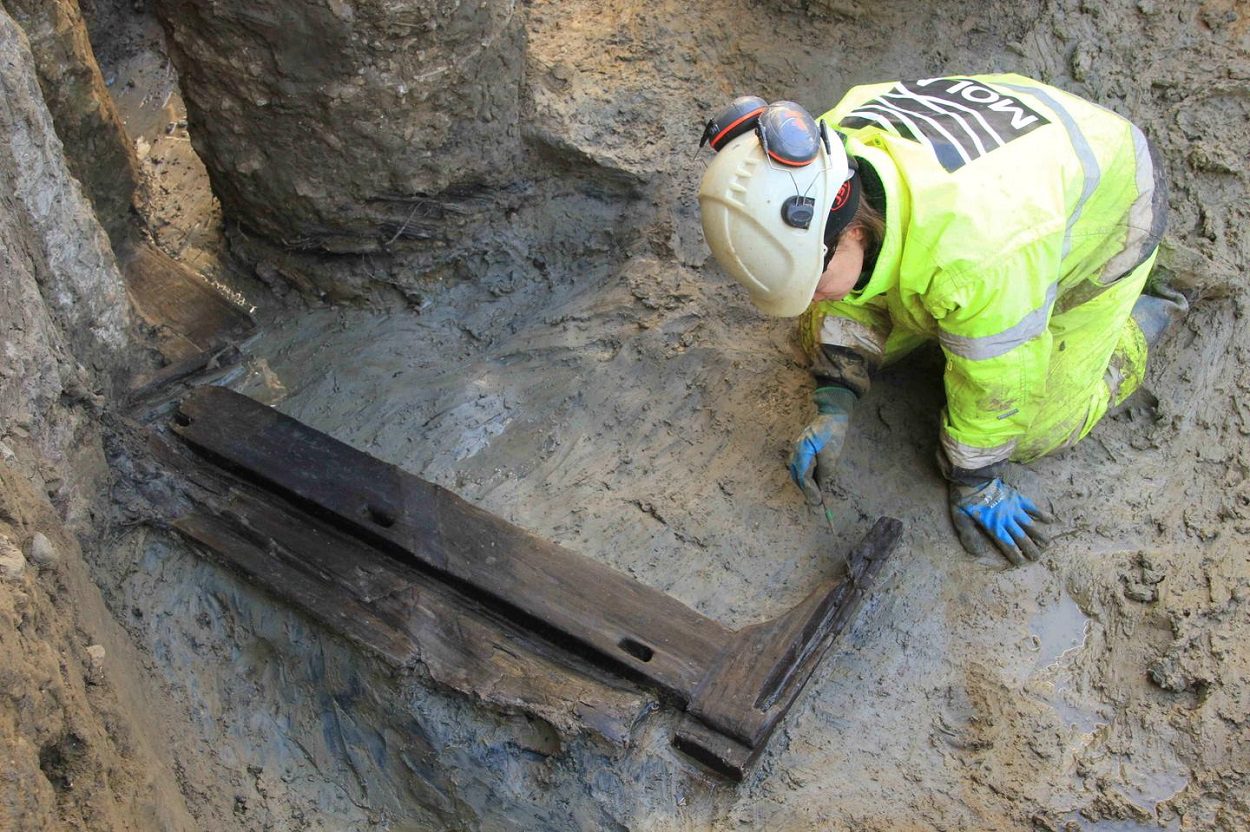Archaeologists from MOLA have uncovered a complete Roman funerary bed during excavations near the Holborn Viaduct in London.
During the Roman period, the location was a burial cemetery located on the outskirts of Roman Londinium (London), next to the major Roman road of Watling Street.
Excavations were commissioned by the Royal London Asset Management Property in preparation for the construction of new office space.
According to MOLA, the team found “an incredibly rare Roman funerary bed – this is the first complete funerary bed found in Britain! Made from high-quality oak, the bed has carved feet, and joints fixed with small wooden pegs.”
Finding wooden objects on archaeological sites in Britain is very rare, but the proximity to the River Fleet has led to the preservation in the moist mud.
During the burial ceremony during Roman times, the deceased may have been carried on the bed to the place of burial, where it was taken apart and placed in the grave.
MOLA archaeologists suggest that the bed was likely a funerary offering to be used in the afterlife, as Roman tombstones found across the Roman Empire often depict carvings showing the deceased reclining on a bed.
Although no other grave goods were found with the burial, a wider study of the cemetery has led to the discovery of personal objects such as a glass vial, a decorated lamp, and high-status jewellery with jet and amber beads.
“The design on the lamp is an image of a defeated gladiator, and we think it dates to the very early Roman period in Britain between AD 48 to 80,” said a MOLA representative to HeritageDaily.
Header Image Credit : MOLA





